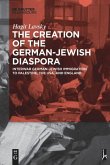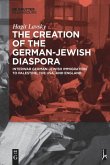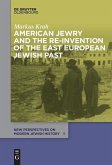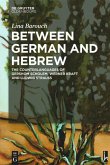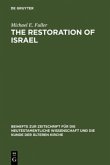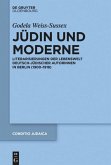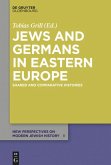The rich history of the German rabbinate came to an abrupt halt with the November Pogrom of 1938. The need to leave Germany became clear and many rabbis made use of the visas they had been offered. Their resettlement in Britain was hampered by additional obstacles such as internment, deportation, enlistment in the Pioneer Corps. But rabbis still attempted to support their fellow refugees with spiritual and pastoral care. The refugee rabbis replanted the seed of the once proud German Judaism into British soil. New synagogues were founded and institutions of Jewish learning sprung up, like rabbinic training and the continuation of "Wissenschaft des Judentums." The arrival of Leo Baeck professionalized these efforts and resulted in the foundation of the Leo Baeck College in London. Refugee rabbis now settled and obtained pulpits in the many newly founded synagogues. Their arrival in Britain was the catalyst for much change in British Judaism, an influence that can still be felt today.
"[...] Zajdband's study is well worth reading. We may hope that it will encourage more readers and researchers to engage with a German(-speaking)/British/Jewish history that can be described, in the best sense, as truly transnational."
Martina Niedhammer in: German Historical Institute London Bulletin XLI.1 (2019), 145-148
"Exhaustively researched, this detailed study is especially strong in exploring Germany's pre-Nazi Jewish landscape, the persecutions that arose after 1933, the difficulties in escaping and the moral dilemmas posed by fleeing and leaving congregations behind. [...] Overall, this is a welcome and valuable addition to the study of Jewish refugee sub-groups in 1930s Britain and it makes an important contribution to the historiography of migration, exile and refugee studies and the Second World War."
Jennifer Craig-Norton in: Judaica. Beiträge zum Verstehen des Judentums 73 (2017), 2-3, pp. 357-359
"[...] German Rabbis in British Exile is a great book in which its author Astrid Zajdband uncovers an almost unknown story and gives new insights into the history and broader implications of the German Jewish diaspora and its refugee rabbinate."
David Jünger in: German History, doi:10.1093/gerhis/ghx096, (05.01.2018)
"[...] gelungene, angenehm lesbare Studie."
Monika Halbinger in h-soz-kult http://www.hsozkult.de/publicationreview/id/rezbuecher-27506
"Astrid Zajdband's study presents new information on the interesting question of how German rabbis managed their lives and professions in the very different ambiance of Great Britain. Its use of quantitative approaches, in addition to more traditional ones, in order to define the subject more precisely is a welcome innovation."
Michael A. Meyer, Hebrew Union College - Jewish Institute of Religion
Martina Niedhammer in: German Historical Institute London Bulletin XLI.1 (2019), 145-148
"Exhaustively researched, this detailed study is especially strong in exploring Germany's pre-Nazi Jewish landscape, the persecutions that arose after 1933, the difficulties in escaping and the moral dilemmas posed by fleeing and leaving congregations behind. [...] Overall, this is a welcome and valuable addition to the study of Jewish refugee sub-groups in 1930s Britain and it makes an important contribution to the historiography of migration, exile and refugee studies and the Second World War."
Jennifer Craig-Norton in: Judaica. Beiträge zum Verstehen des Judentums 73 (2017), 2-3, pp. 357-359
"[...] German Rabbis in British Exile is a great book in which its author Astrid Zajdband uncovers an almost unknown story and gives new insights into the history and broader implications of the German Jewish diaspora and its refugee rabbinate."
David Jünger in: German History, doi:10.1093/gerhis/ghx096, (05.01.2018)
"[...] gelungene, angenehm lesbare Studie."
Monika Halbinger in h-soz-kult http://www.hsozkult.de/publicationreview/id/rezbuecher-27506
"Astrid Zajdband's study presents new information on the interesting question of how German rabbis managed their lives and professions in the very different ambiance of Great Britain. Its use of quantitative approaches, in addition to more traditional ones, in order to define the subject more precisely is a welcome innovation."
Michael A. Meyer, Hebrew Union College - Jewish Institute of Religion


